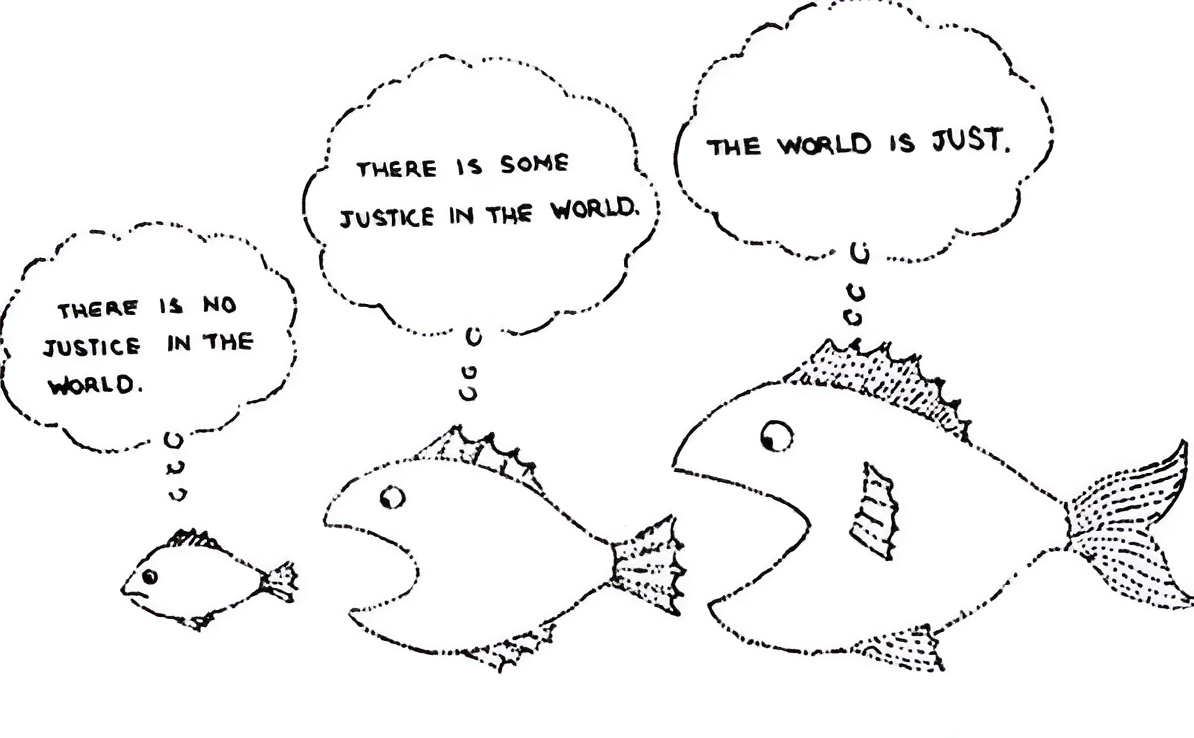The Just World Hypothesis: The Belief in a Fair Universe
The Just World Hypothesis is a cognitive bias that leads individuals to believe that the world is fundamentally fair and just. It assumes that people receive what they deserve, and that good actions are ultimately rewarded while bad actions are punished.
Examples of the Just World Hypothesis:
Blaming the Victim: When a person experiences a misfortune, such as a natural disaster or a financial setback, individuals influenced by the Just World Hypothesis may be inclined to blame the victim, believing that they must have done something to deserve their predicament.
Success Justification: When someone achieves success or wealth, people may attribute their accomplishments solely to their skills or hard work, rather than acknowledging the role of luck or external factors.
Karma Belief: The concept of karma, prevalent in many cultures, aligns with the Just World Hypothesis, suggesting that people’s actions will come back to them, either through rewards or punishments.
The Just World Hypothesis in Action:
Imagine a scenario where two colleagues, Sarah and John, are both laid off from their jobs due to a company downsizing. Sarah is empathetic and supportive, recognizing the economic downturn’s role in the layoffs. John, influenced by the Just World Hypothesis, begins to suspect that the laid-off employees must have been slackers or underperformers, as he struggles to accept that such an “unjust” event could happen to hardworking individuals.
Solutions to Mitigate the Just World Hypothesis:
Empathy and Compassion: Encourage individuals to develop empathy and compassion towards those facing misfortune, rather than making judgments based on the belief in a just world.
Acknowledge Complexity: Remind people that life events and outcomes are often complex and influenced by various factors, including chance and external circumstances.
Counter Stereotypes: Challenge stereotypes and misconceptions that arise from the Just World Hypothesis, as these stereotypes can perpetuate discrimination and victim-blaming.
Cultivate Humility: Promote humility by acknowledging the role of luck and external factors in one’s own successes, and by recognizing that adversity can happen to anyone.
In conclusion, the Just World Hypothesis is a cognitive bias that leads individuals to believe in a fundamentally fair and just world. To mitigate the impact of this bias, it’s important to foster empathy, acknowledge the complexity of life’s events, challenge stereotypes, and cultivate humility. By doing so, we can develop a more compassionate and realistic view of the world.
